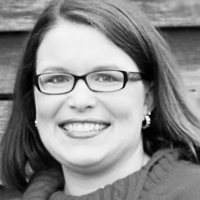Editor’s note: This text-based course is a transcript of the webinar, Forget Me Not…Evaluation and Treatment of the Patient with Dementia, Part 2: Where and When, presented by Amber B. Heape, MCD, CCC-SLP, CDP.
Learning Objectives
After this course, participants will be able to:
- Describe qualities of the Seven Global Deterioration Scale levels.
- Explain how to analyze characteristics of standardized and non-standardized assessment to accurately determine appropriateness for use with patients.
- Describe CPT coding and ICD-10 used for treating patients with dementia.
Global Deterioration Scale
When we are treating patients, we sometimes have a tendency to place excess disability on them. In other words, we do more for that patient than we necessarily should. We do not allow the patient to perform activities that they could perform without a therapist’s intervention. We treat the patient as if they are more disabled than they truly are. We need to keep this in mind when we are educating staff, and when we are providing care, because we want to focus on the patient’s best functional abilities. Instead of looking at what they can’t do, we want to focus on what they can do.
In my last session, we clarified that dementia is not a disease in and of itself; it is a group of symptoms. We can measure a patient’s cognitive abilities, typically using one of two main tools: Allen Cognitive Level and Global Deterioration Scale. As SLPs, most often we will use the Global Deterioration Scale (GDS), which was developed by Dr. Barry Reisberg. I have included a link in the handout where you can obtain a copy of it for free.
In the GDS, there are seven stages of degeneration:
- GDS 1 ‐ Normal adult
- GDS 2 ‐ Forgetfulness
- GDS 3 ‐ Early Confusional State
- GDS 4 ‐ Late Confusional State (Mild Dementia)
- GDS 5 ‐ Moderate Dementia
- GDS 6 ‐ Severe Dementia
- GDS 7 ‐ Late/Severe Dementia
When we are scoring using the GDS, patients do not always receive a score that is a whole, round number. Their score may have a decimal point (e.g., 2.4, 3.6, 4.8, etc.). For example, when I see a GDS 2.4, I still classify them as a 2, but I look at the characteristics that might be progressing them closer to a 3. If they are a GDS 2.6 or 2.8, for example, I will typically round up to a Level 3, because they are displaying more characteristics of a 3 than a 2. On the slides for the GDS levels, I included age equivalencies. However, I want to preface our discussion with a reminder that just because a person’s mental age equivalency is a certain level does not mean we should treat them as if they were that age. The dementia patients we are working with are adults and should be treated as such, with their dignity as an adult maintained. I provided the age equivalents as a comparison, to make you think about these different ages and what may be occurring cognitively.
GDS Level 1
At GDS Level 1 patients are normal adults with normal brain function. They do not have any evident cognitive changes occurring. We do see patients in the GDS 1 range who have risk factors for cognitive decline.
GDS Level 2
GDS Level 2 includes some mild forgetfulness. It can be influenced by stress, fatigue or by sleeplessness. These patients may have some executive function deficits, but nothing seriously concerning. As they progress toward a 3, we may see some more mild cognitive impairment. They are experiencing some brain tissue loss, and these patients are at risk for progressing into Alzheimer’s dementia. They can be somewhat impulsive but typically, they are fine to live independently. They can complete all their self-care tasks. They may not always make the correct decision with regard to safety. They are considered a bit more forgetful than normal aging. GDS 2 patients recover quickly when they make mistakes. They often realize immediately (or within a few minutes) that they made a mistake, and quickly self-correct. They may misplace familiar objects. I heard a saying once that, “If you lose your car keys, you don’t have dementia; if you forget how to use your car keys, you have dementia.” We all misplace things or lose our train of thought, and need to retrace our steps or remember the sequence of our conversation. A normal adult can typically remember what they were going to say or find familiar objects. At GDS Level 2, these adults have very high functional social skills. They are still very active in the community. They are driving, attending social and religious events. These patients score well on orientation tests, but when you progress a little further into cognitive exams, that is when you start seeing the deficits.
As these patients progress toward later GDS 2 levels, therapy should focus on complex tasks, teaching them cognitive activities for independent practice. If they are having memory difficulty, teach them how to use space retrieval. As I mentioned in a previous session, these are the patients that greatly benefit from performing daily cognitively stimulating activities. If they are destined to develop dementia, and they perform cognitive activities for 30-minute durations, seven days per week, their dementia will progress two to three times more slowly than if they did not perform the activities. Teaching this theory to our GDS Level 2 patients will allow them to maintain their cognitive skills as long as possible.

